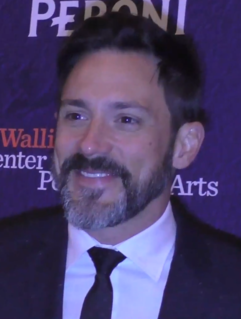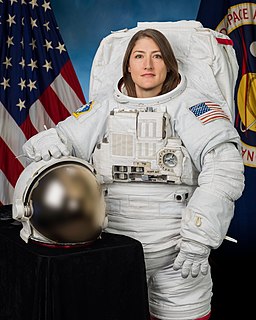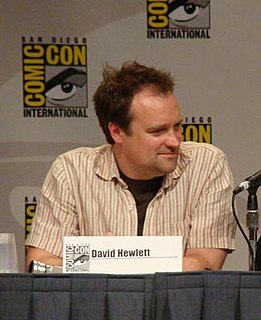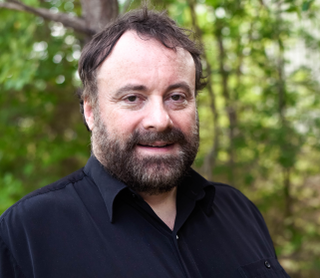Top 42 Astrophysics Quotes & Sayings
Explore popular Astrophysics quotes.
Last updated on April 14, 2025.
We in astrophysics we think of the universe all the time. So to us, Earth is just another planet. From a distance, it's a speck. And I'm convinced that if everyone had a cosmic perspective you wouldn't have legions of armies waging war on other people because someone would say, "Stop, look at the universe."
In our civilization, there are permanent forms which are part of every epoch and every culture. They are not especially difficult to detect. A minimal knowledge of physics, astrophysics, and perhaps mathematics, brings to light certain patterns that make these subjects easier to understand. It is striking to see the extreme similarity between these scientific propositions and the forms that recur in all times, places and civilizations.
In astrophysics, we care about how matter, motion and energy manifest in objects and phenomenon in the universe. Stars are born. They live out their lives. They die. Some of the ones that die explode. Our sun will not be one of those, but it will die. And it'll take Earth with us. So we make sure we have other destinations in mind when that happens. And I've got it on my calendar.
Plainly, such an approach does not exclude other ways of trying to comprehend the world. Someone committed to it (as I am) can consistently believe (as I do) that we learn much more of human interest about how people think and feel and act by reading novels or studying history than from all of naturalistic psychology, and perhaps always will; similarly, the arts may offer appreciation of the heavens to which astrophysics cannot aspire.
How then did we come to the "standard model"? And how has it supplanted other theories, like the steady state model? It is a tribute to the essential objectivity of modern astrophysics that this consensus has been brought about, not by shifts in philosophical preference or by the influence of astrophysical mandarins, but by the pressure of empirical data.
Anyone who has wrestled knows that it's the hardest thing in the world to do. Anyone who says something else is the hardest thing has never wrestled. That's what I have found. ... You don't wrestle because it's easy, you wrestle because it's hard. I don't do astrophysics because it's easy, I do it because it's hard. And I juxtapose the two in my mind, body, and soul all the time.
In whatever you choose to do, do it because it's hard, not because it's easy. Math and physics and astrophysics are hard. For every hard thing you accomplish, fewer other people are out there doing the same thing as you. That's what doing something hard means. And in the limit of this, everyone beats a path to your door because you're the only one around who understands the impossible concept or who solves the unsolvable problem.
I gained a first class degree in Physics at Imperial College London in 1968 and did research in solid state physics, but did not pursue meteorology matters until gaining an M.Sc. in astrophysics from Queen Mary College London in 1981, after which I investigated and attempted to construct theories of solar activity.
Students using astrophysical textbooks remain essentially ignorant of even the existence of plasma concepts, despite the fact that some of them have been known for half a century. The conclusion is that astrophysics is too important to be left in the hands of astrophysicists who have gotten their main knowledge from these textbooks. Earthbound and space telescope data must be treated by scientists who are familiar with laboratory and magnetospheric physics and circuit theory, and of course with modern plasma theory.
My favourite fellow of the Royal Society is the Reverend Thomas Bayes, an obscure 18th-century Kent clergyman and a brilliant mathematician who devised a complex equation known as the Bayes theorem, which can be used to work out probability distributions. It had no practical application in his lifetime, but today, thanks to computers, is routinely used in the modelling of climate change, astrophysics and stock-market analysis.
The most accessible field in science, from the point of view of language, is astrophysics. What do you call spots on the sun? Sunspots. Regions of space you fall into and you don’t come out of? Black holes. Big red stars? Red giants. So I take my fellow scientists to task. He’ll use his word, and if I understand it, I’ll say, “Oh, does that mean da-da-da-de-da?
I will stress once again that we do not know the source from which the UFOs or the alien beings come whether or not, for example, they originate in the physical universe as modern astrophysics has described it). But they manifest in the physical world and bring about definable consequences in that domain.
What is surprising is that almost all the trends that developed within the sciences, Aristotelianism and an extreme Platonism included, produced results, not only in special domains, but everywhere; there exist highly theoretical branches of biology and highly empirical parts of astrophysics. The world is a complex an many-sided thing.
Civilization just takes it as a given that the whole world was flooding. Then science came and you had geology and modern astrophysics, and time became well understood going back billions of years. So enlightened religious people, as a necessity, had to shed the magical elements of the Bible. A little known fact is that Thomas Jefferson did just that. There's something called the Jefferson Bible. It's not widely publicized because it sort of conflicts with certain people's ideas of what the founding fathers were.
By analyzing data from Greenwich Observatory in the period 1836-1953, John A. Eddy [Harvard-Smithsonian Center for Astrophysics and High Altitude Observatory in Boulder] and Aram A. Boornazian [mathematician with S. Ross and Co. in Boston] have found evidence that the sun has been contracting about 0.1% per century during that time, corresponding to a shrinkage rate of about 5 feet per hour. And digging deep into historical records, Eddy has found 400-year-old eclipse observations that are consistent with such a shrinkage.




























